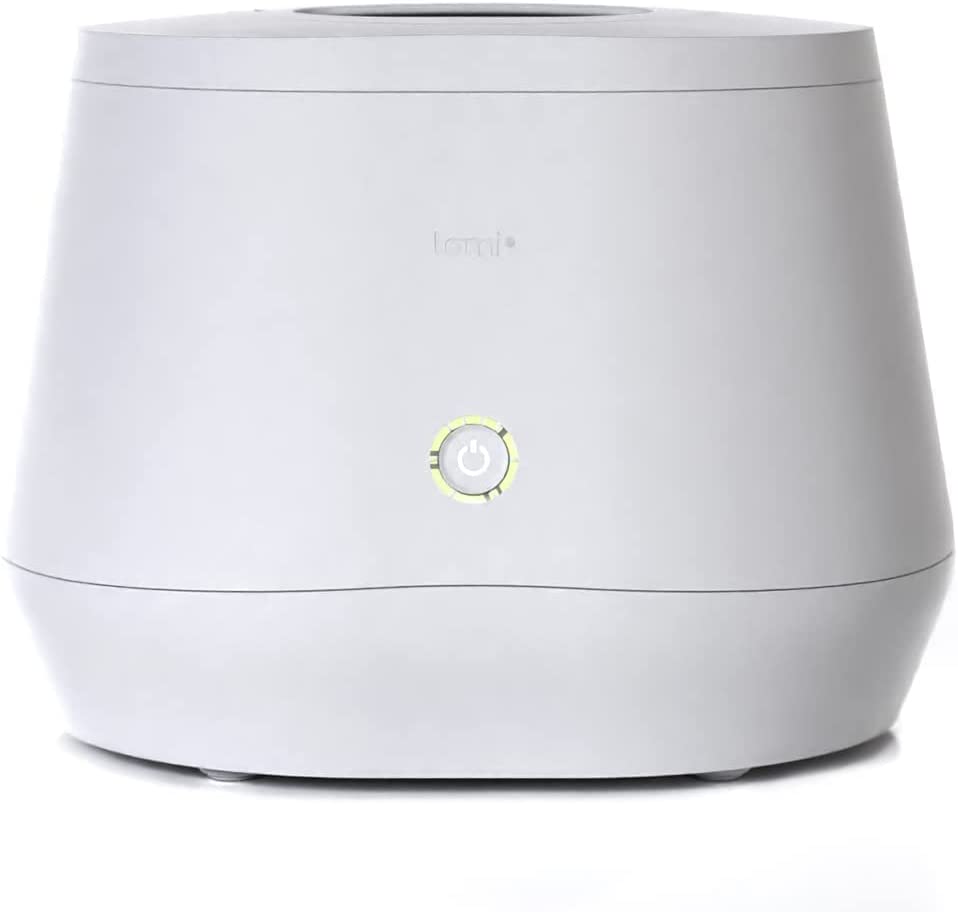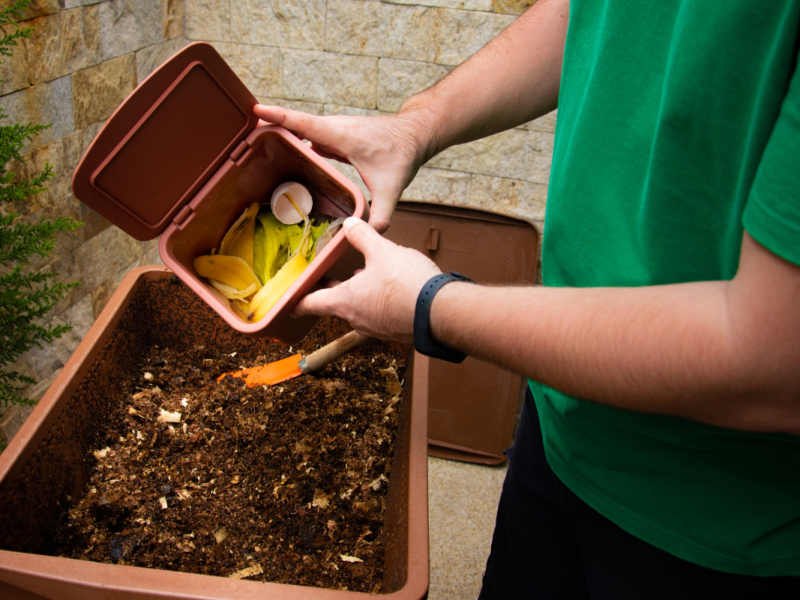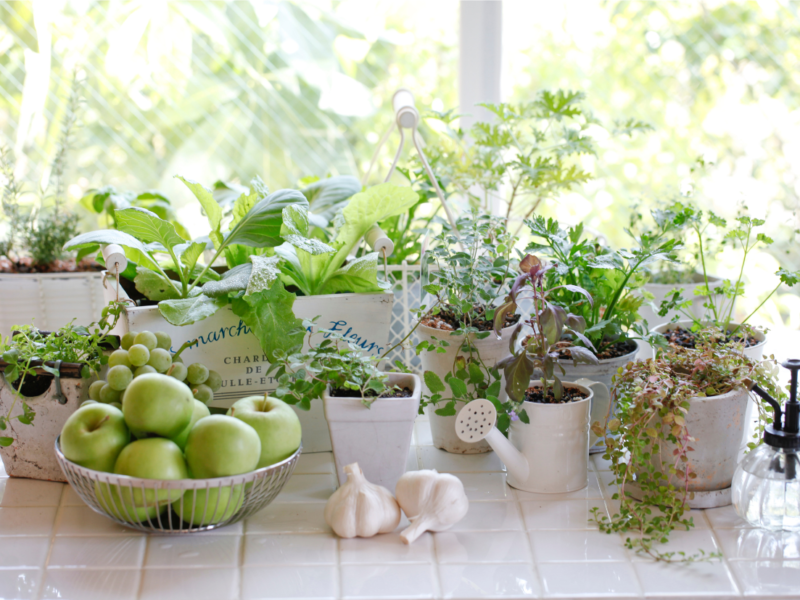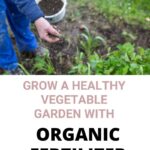In order to up your garden game, you need to focus on building healthy soil. Here are the best fertilizers for vegetable gardens. Vegetable gardens are a great way to grow food and save money but require maintenance. One important part of that maintenance is knowing how to fertilize your vegetable garden. Doing so can help improve the overall health and productivity of vegetables in your garden and increase yields. Gardening is truly all about cultivating soil rather than plants. When you help create good soil, nature provides healthy and abundant plants.
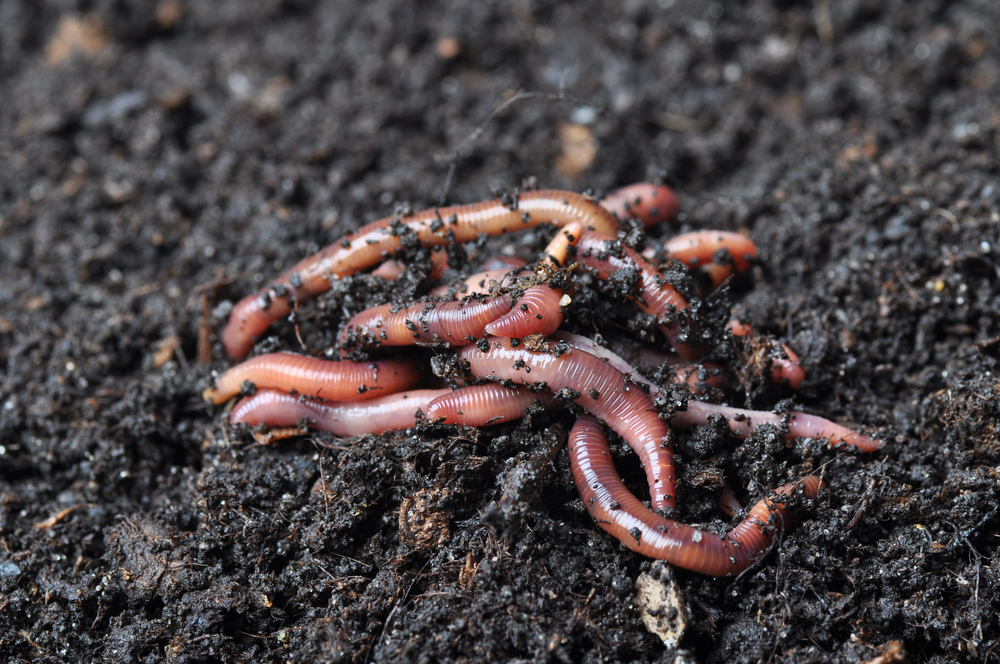
This post may contain affiliate links, which means I can receive a commission from any purchase made from the links. I earn from purchases from Amazon links. See the disclosure policy here.
The Best Fertilizers for Veggie Gardens
The three most important nutrients for vegetable plants are nitrogen, phosphorous, and potassium (NPK). You can find these in organic fertilizers and synthetic fertilizers.
Organic fertilizers have been around for centuries and have been used by gardeners worldwide.
They’re made from animal or plant matter decomposing naturally to release nutrients into the soil. This fertilizer also contains microbes that help break down organic matter into something plants can use as food.
Synthetic fertilizers are created in laboratories using chemicals like ammonia nitrate or urea ammonium nitrate, which contain large amounts of nitrogen, so they’re great at promoting fast growth but don’t always provide enough other nutrients needed by your vegetables, such as phosphorous or potassium which means you’ll need additional sources like composted manure if you want healthy plants growing strong roots within their containers!
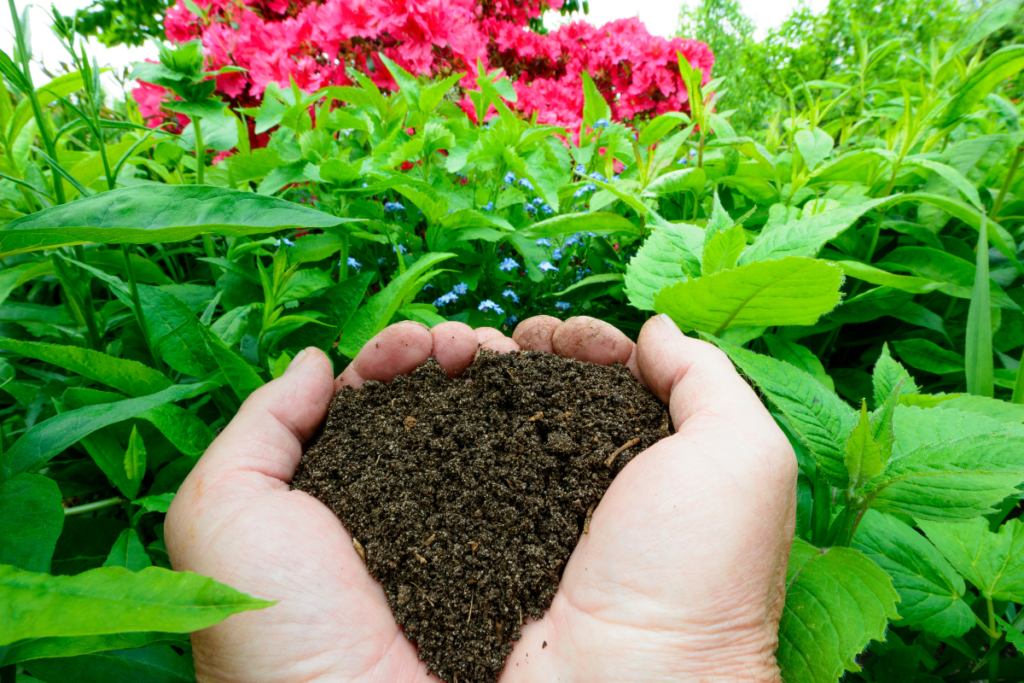
Nitrogen, Phosphorous, and Potassium (NPK)
Nitrogen, phosphorus, and potassium are plants’ three main nutrients to grow.
The ratio of these nutrients in a fertilizer can be expressed as a ratio of N-P-K (nitrogen/phosphorus/potassium).
Fertilizers with higher nitrogen ratios are good for leafy green growth; those with higher phosphorus ratios promote root development; those with higher potassium encourage blooming and fruiting.
Organic vs. Synthetic
Organic fertilizer is a better environmental choice, but your plants have better options. Synthetic fertilizer can be harmful to the environment and your garden. There are some pros and cons of each type of fertilizer:
Organic fertilizers are made from natural materials like manure or compost that have been broken down over time by microorganisms in the soil.
This process uses carbon dioxide (CO2) as food and releases oxygen as a waste product–a process known as decomposition.
The CO2 is taken out of the atmosphere by plants during photosynthesis, which uses sunlight to convert CO2 into sugars that power growth processes like cell division and root development.*
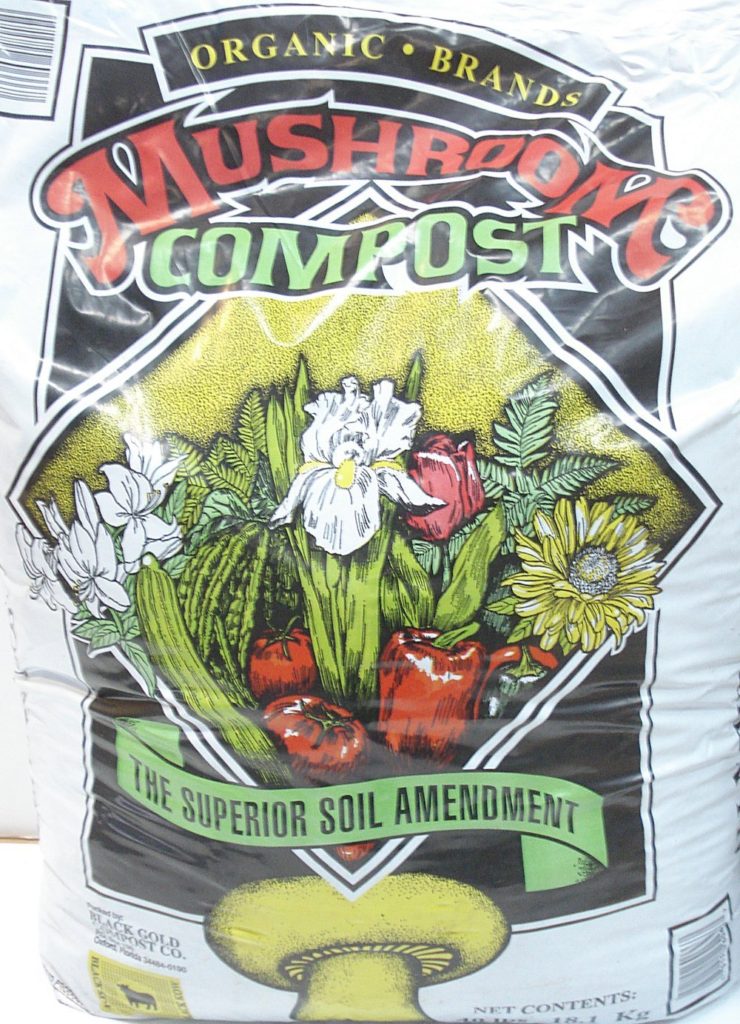
Mushroom Compost is the growing matter waste of mushroom farming. It can contain some manure from chickens or cows, hulls, and straw matter from soybeans, cotton, and hay along with other natural elements.
It also likely contains some pesticide residue from conventionally farmed ingredients like corn or soybeans.
It is a good option to help neutralize acidic soil, but otherwise, there are better fertilizers for vegetable gardens.
Synthetic fertilizers contain nitrogen (N), phosphorus (P), potassium (K), and micronutrients such as iron, zinc magnesium, manganese sulfur, boron copper-molybdenum, cobalt nickel cadmium, chromium arsenic, tin-lead mercury selenium tellurium bromine iodine fluorine hydrogen sulfide ozone chlorine nitrous oxide ammonia perchlorate hydroxyl radical sulfhydryl radical hydroxyl radical superoxide anion singlet oxygen triplet oxygen singlet carbene triplet carbene singlet oxygen free radicals.
While organic fertilizers release compounds into the soil slowly, synthetic fertilizers can release nutrients too quickly, causing issues and even death in plants.
Are Synthetic Fertilizers Safe for Vegetable Gardens?
Synthetic fertilizers contain inorganic substances, chemicals, and artificial matter. Organic is always your best bet, especially when applying to food crops that you grow to feed your family.
Manmade fertilizers change the natural balance of soil, endangering, altering, and killing the soil ecosystem.
This can have devastating and long-lasting effects on soil health.
The buildup of nitrogen and other compounds can pollute groundwater, which then pollutes drinking water and wildlife ecosystems.
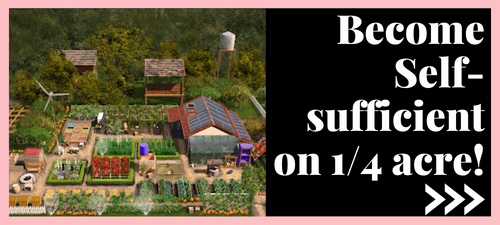
Choosing the Right Type of Organic Vegetable Garden Fertilizer
There are many different types of organic vegetable garden fertilizers. The best fertilizer for your vegetable garden depends on what you want to grow, how much time and money you wish to spend, and whether or not you have access to fresh manure (which can be composted into excellent fertilizer).
What is the best fertilizer for my vegetable garden?
It’s important to choose the right type of organic fertilizer so that it provides all the nutrients needed by your plants without causing problems such as soil pH imbalance or salt buildup in their roots.
Fertilizers with high nitrogen content can cause leaf burn on some plants if applied too early in their growth cycle; likewise, over-fertilizing with phosphorous leads to excessive growth at an unnatural rate which stresses out both plant and gardener alike!
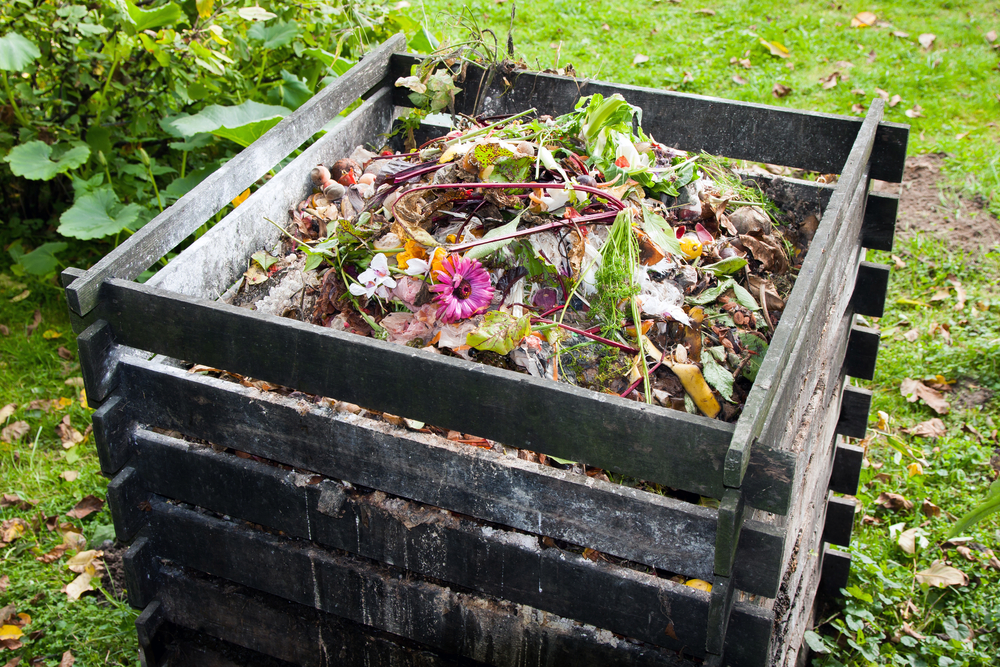
1. Homemade Composted Vegetable Scraps
Composted kitchen scraps make excellent organic fertilizer.
You can use a countertop composter like Lomi, an outdoor rotating composter like this one from VivoSun, or you can build your own if you have the space.
We built this “in-garden” composting bin in our garden beds. It is a great place to throw banana peels and other fast composting scraps. The holes allow worms to feed on the scraps, which carry nutrients and airflow out of the bucket and into the garden.
2. Raw Rabbit Manure and Urine
Rabbit pellets have mild nitrogen, phosphorous, and potassium content which is perfect for fertilizing plants! The pellets make a great slow-release type of fertilizer. They are the cleanest manure to handle, in my opinion — Not very smelly or messy and easy to use.
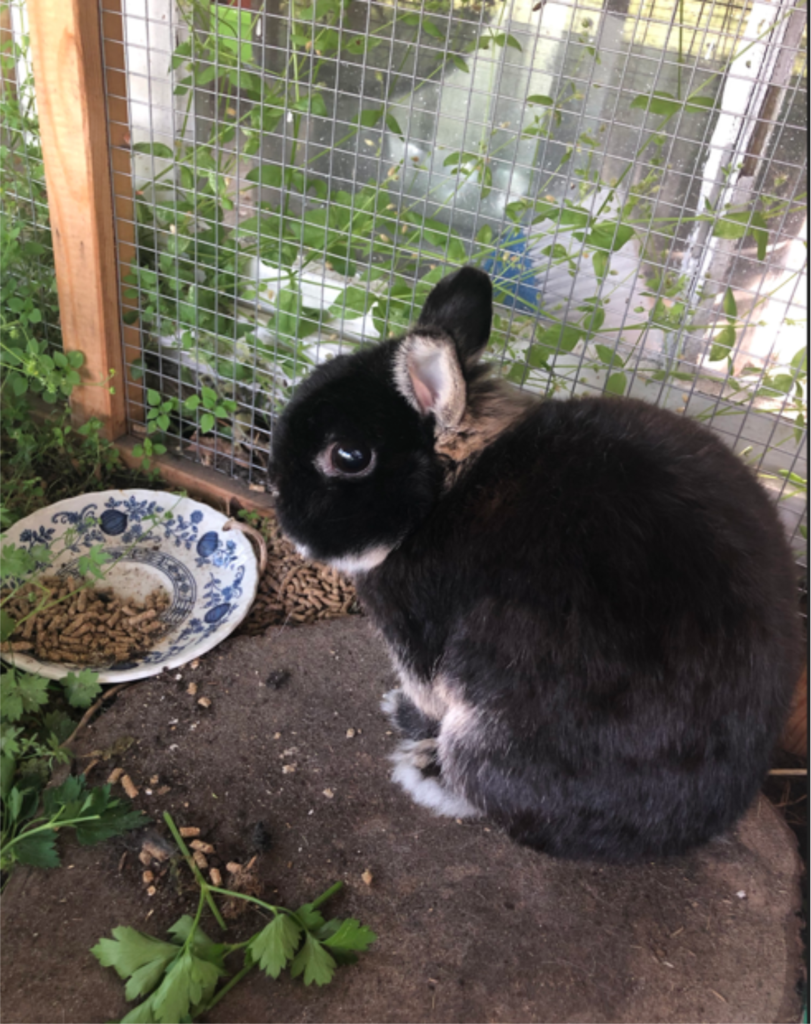
Did you know rabbit manure is four times as rich as chicken manure and twice as rich as cow manure?! It contains various minerals and nutrients that vegetables and fruit need to grow.
Earthworms love rabbit manure. The worms feed on the manure, increasing airflow and soil biodiversity.
We raise rabbits just for the valuable fertilizer they provide!
3. Composted Chicken Manure
Chicken manure is very nutrient-dense, even more so than cow manure! However, it must be allowed to compost for months before using it directly on plants.
Composted Cow Manure can be found in bags or from farms. It is organic matter, but not to be confused with organic farming practices.
Organically farmed cattle are not given antibiotics, but that doesn’t mean they aren’t subject to many other synthetic chemicals. See the full list here. Remember that it will contain the cattle’s diet, so knowing its source is a great way to know what goes into the soil you are raising food with.
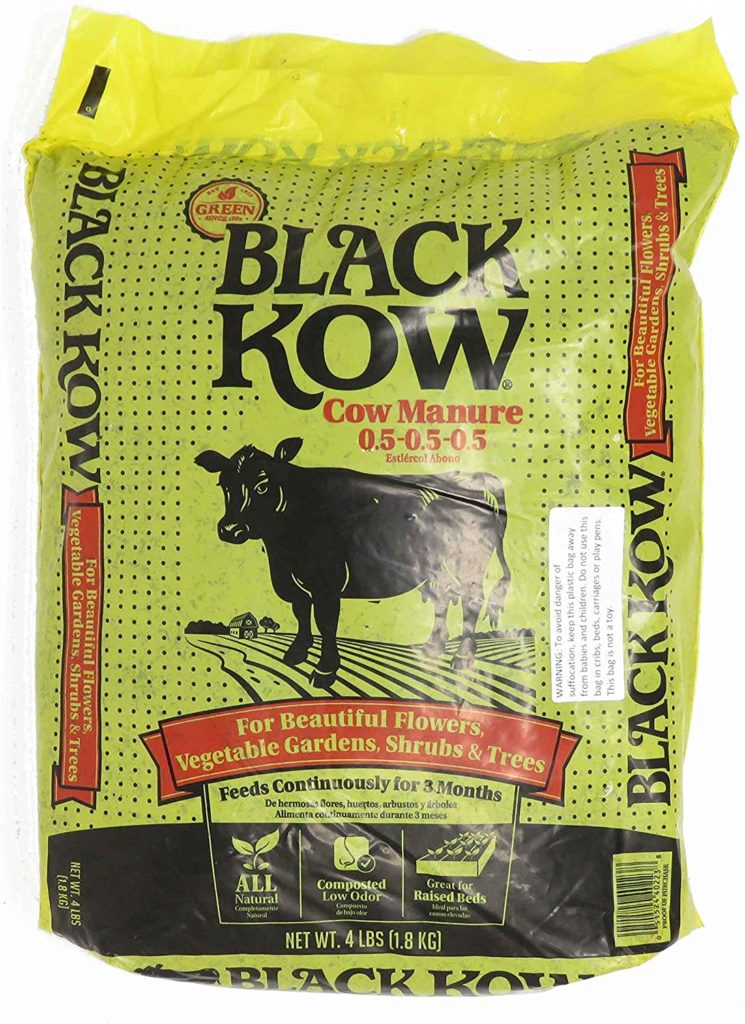
4. Composted Cow, Horse, or Goat Manure
Unlike rabbit and alpaca manure, most livestock manure must be composted for at least 120 days or more before it is safe enough to apply directly to plants.
Composting will naturally occur over six months to a year. Composing raw manure into usable fertilizer is a great way to recycle nutrients into the soil for new plants.
Manure is a great source of nitrogen, phosphorus, and many other nutrients for healthy soil. However, you want to keep in mind that the quality of the manure depends on the diet of the producer.
That being said, choose manure from trusted sources, such as a nearby farm, if you don’t have animals on your homestead. I recommend always using an organic brand if you purchase it from a store.
5. Compost Tea
You can turn any organic compost fertilizers into compost tea by adding water and straining out any clumped matter. This “tea” can be put into a sprayer or pitcher for easy gardening application.
We have pet rabbits in our garden, and making compost tea with rabbit manure is our go-to method for organic fertilizer. It is easy and not very messy like other types of manures.
Our rabbit uses a litterbox of hay. We add fresh hay every day or two to his box. Once the box is full, we add water to the litterbox and pour the “tea” into a container to spray on plants. We repeat this step up to 10 times with one litter box.
Making compost tea with fresh rabbit manure is a sustainable and free way to grow rich and diverse soil.
Conclusion
If you want to grow a healthy, productive vegetable garden, knowing how to fertilize your plants is important. You can choose from many types of organic fertilizer and find one that best suits your needs.
